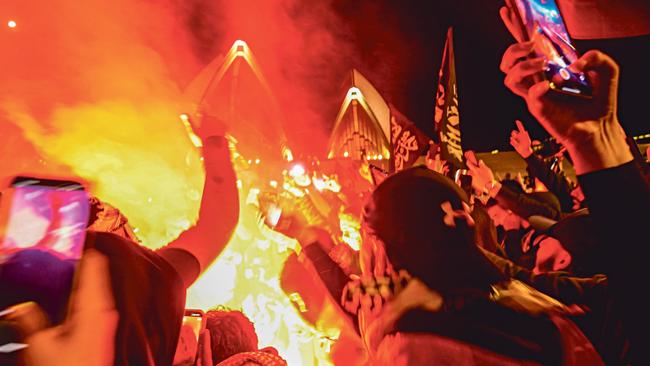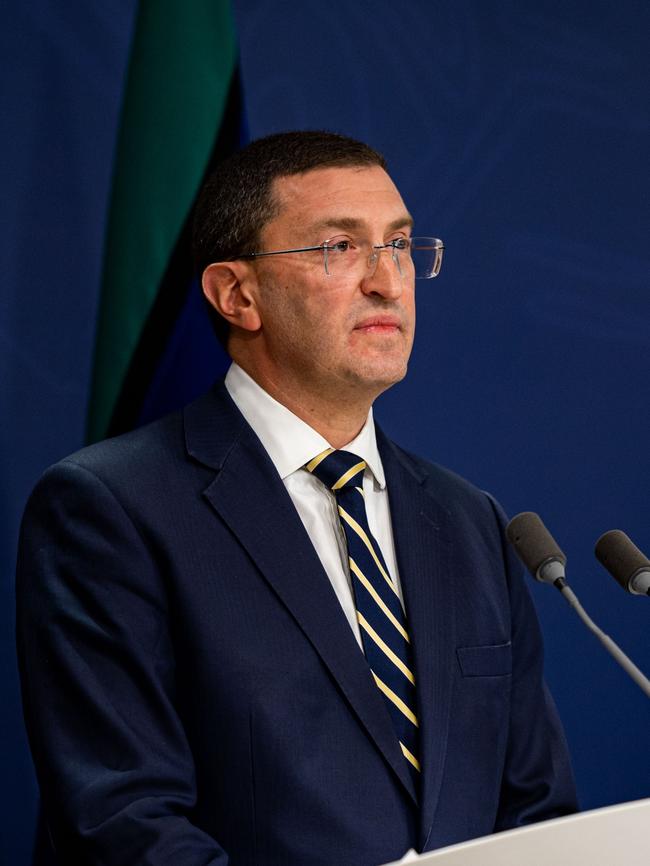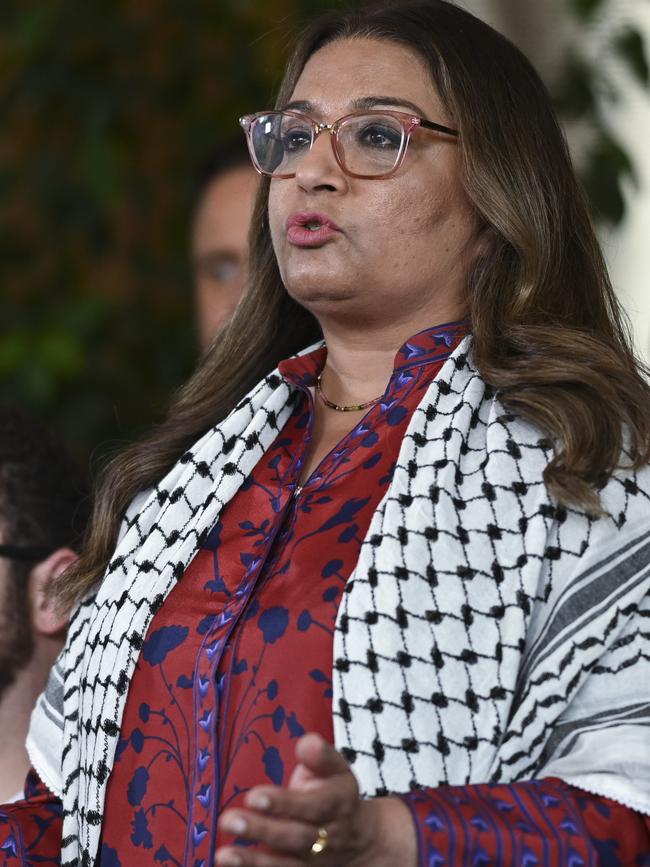The Human Rights Commission has gone AWOL

The day after the attack, I visited the mosque in my electorate to express my solidarity with the Muslim community. They welcomed me as a friend. The horror of that attack was a reminder of the evil that is the result of racism, hatred and prejudice.
All of us, no matter our faith or lack of faith, deserve to live freely and safely. It is why, after the Christchurch massacre, I put the case to Scott Morrison, then prime minister, that we should fund security upgrades for religious places of worship, schools and community places. To his credit, he did so with a $55m program.
As a Liberal and as a parliamentarian, I believe my responsibility is to defend the freedom of all. That’s why I have always been a strong supporter of laws that protect against hate, and it’s why I support institutions that protect people from such prejudice and malice.
In this country, the Australian Human Rights Commission has a vital job in protecting people from prejudice and hatred. Traditionally, it speaks for communities that are overlooked or dealing with prejudice and discrimination in many forms. It does some good work settling private disputes.
However, in recent months I have become troubled by the absolute silence of the AHRC in relation to the wave of anti-Semitic rhetoric and actions that has occurred across Australia. Frankly, the AHRC has gone AWOL.
It is not for lack of resources. The AHRC is a big institution with about 200 staff and it is projected to cost taxpayers $43m this year. In its annual report in 2022-23, the commission boasted that its achievements included 29 major reports, publications and resources; 28 projects attracting strategic partnerships; nine major events; 237 speeches and presentations; 87 web news items; 235 media interviews; and 16 opinion pieces. That report even detailed the recycling activities in the commission’s workplaces and the emissions created by its cars and business class travel.

Do you know how many speeches, opinion pieces, publications, strategic partnerships and media interviews have been written or given by the AHRC specifically condemning anti-Semitism since the October 7 terror attack in Israel? It’s zero.
Yet this has been a time when anti-Semitism has skyrocketed. In the last quarter of 2023, the Victorian police registered 145 prejudice-based crimes, with 102 of those complaints, or 70 per cent, relating to instances of anti-Semitism.
Since October 7 anti-Semitism is off the charts, with demonstrations outside synagogues, anti-Semitic posters covering parts of our inner cities and university students reporting being victimised in classrooms. With this backdrop, Greens politicians have heightened their rhetoric, even going as far as invoking a Joseph Goebbels-inspired trope about Jewish “tentacles”.
Despite all this, the AHRC has gone missing.
In the days after the Sydney Opera House riot on October 9 that celebrated the Hamas terrorist attack and tarnished Australia’s reputation around the world as a bastion of multiculturalism and tolerance, the AHRC president put out one statement. It was a statement on Friday, October 13, and it specifically expressed the president’s concerns that the rights of Australians to protest might be curtailed. Six days after the Hamas attacks, and there was no statement on the evil actions of Hamas.
Neither was there any reference to the 200-plus men, women and children held hostage, nor any specific warning about anti-Semitic hatred. Instead, there was a statement of bland generalities and a warning that we must protect the rights of demonstrators.
Last week, we saw another media release from the commission. It did make an oblique reference to anti-Semitism but it was in a statement condemning a possible Israeli ground assault on Rafah. That release contained no mention of the word hostages or indeed the word Hamas.
This is not to make any unfair personal assertion against AHRC president Rosalind Croucher. In 2018 she gave a fine speech, speaking out against anti-Semitism. My concern is that the president and other commissioners haven’t spoken when it has mattered, and that has been across the past 5½ months.

Since the pogrom on October 7 and the resultant 738 per cent increase in anti-Semitic attacks on Jewish Australians detailed in a report by the Executive Council of Australian Jewry, the AHRC has become frozen by political paralysis that has made the commission fearful of acknowledging and engaging with the anti-Semitism that Jewish Australians are facing.
Its approach is further typified by the commission’s response to an anonymous letter from AHRC staff in January condemning the commission for not speaking out forcefully in support of the Hamas attacks. At a Senate estimates hearing last month, the president said the concerns of staff expressed in the anonymous letter were “a paramount concern”.
No, Professor, the paramount concern should be racism and Jew-hatred and prejudice faced by Australians, not the preciousness of staff who have the time to write anonymous letters.
I write this as someone whose record of supporting institutions and laws that provide protection on the basis of race is clear. At times in my career I have paid a price for those beliefs. That’s why I believe if an institution charged with protecting Australians from racism and hate is not fulfilling its mandate, then Australians should question why it exists in the first place and whether it is doing the job it should be doing as it is constituted.
This is not a time to wring our hands. This is a time for Australians to defend freedom and to stand against racism and hatred. It is also a time for moral clarity – and that must start with the Australian Human Rights Commission.
Julian Leeser is the Liberal member for Berowra in Sydney. This is an edited version of a speech he delivered at the Cook Society.



It was five years ago this week that we witnessed the terrible Christchurch massacre, a vile attack on Muslim places of worship orchestrated by an Australian.